News
BAPO P&O Awards 2025

Nominations are now open for BAPO P&O Awards 2025!
BAPO is dedicated to recognising and celebrating our prosthetists, orthotists, technicians, support workers, and learners. We are delighted to open nominations for the 2025 BAPO Awards. We are pleased to announce an additional 4 Awards this year!
Anyone can nominate an individual for these awards, including clinicians, colleagues, technicians, patients, learners, and managers. You can also nominate yourself.
The Awards for 2025 are:
Prosthetist of the Year – Sponsored by North Sea Plastics
Orthotist of the Year – Sponsored by OETT
Technician of the Year – Sponsored by Algeos
Rising Star Award – Sponsored by OSSUR
Learner of the Year
Best P&O Team Award 2025 – Sponsored by Thuasne
Outstanding Customer Service Award
BAPO Hero Award
Practice Educator of the Year
Researcher of the Year
Support Worker of the Year
Outstanding Leader of the Year – Sponsored by Blatchford
Nominations close on 31st July 2025.
Shortlisted nominees will be contacted in August, and the winners will be announced at the BAPO Awards ceremony (date and location to be confirmed).
Please provide detailed responses to help our judges evaluate nominees effectively.
Please take the time to share this with your colleagues and wider network to ensure P&O colleagues get the recognition they deserve!
Please stay tuned as more information will follow!
If you are interested in sponsoring an award, please contact enquiries@bapo.com
Please print and display the posters below to raise awareness of the awards and encourage people to nominate.
Our Sponsors
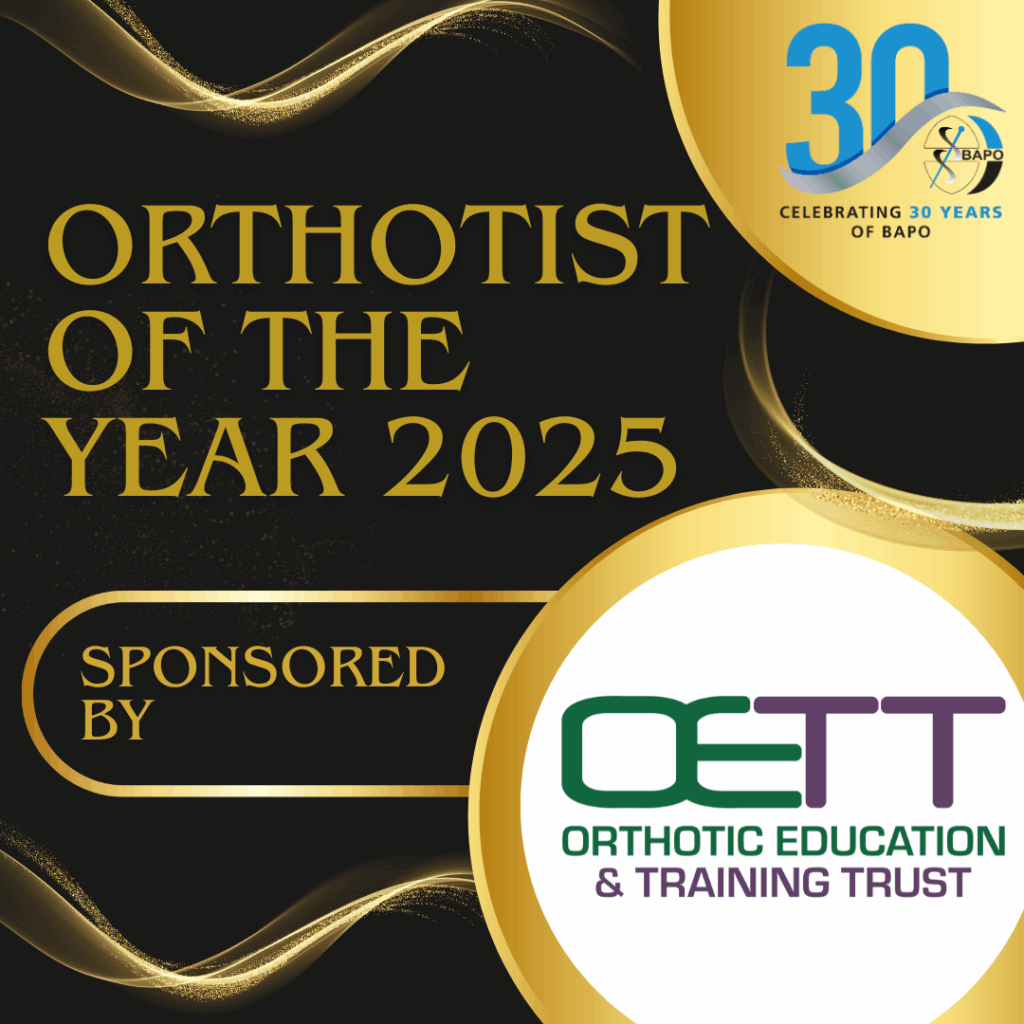
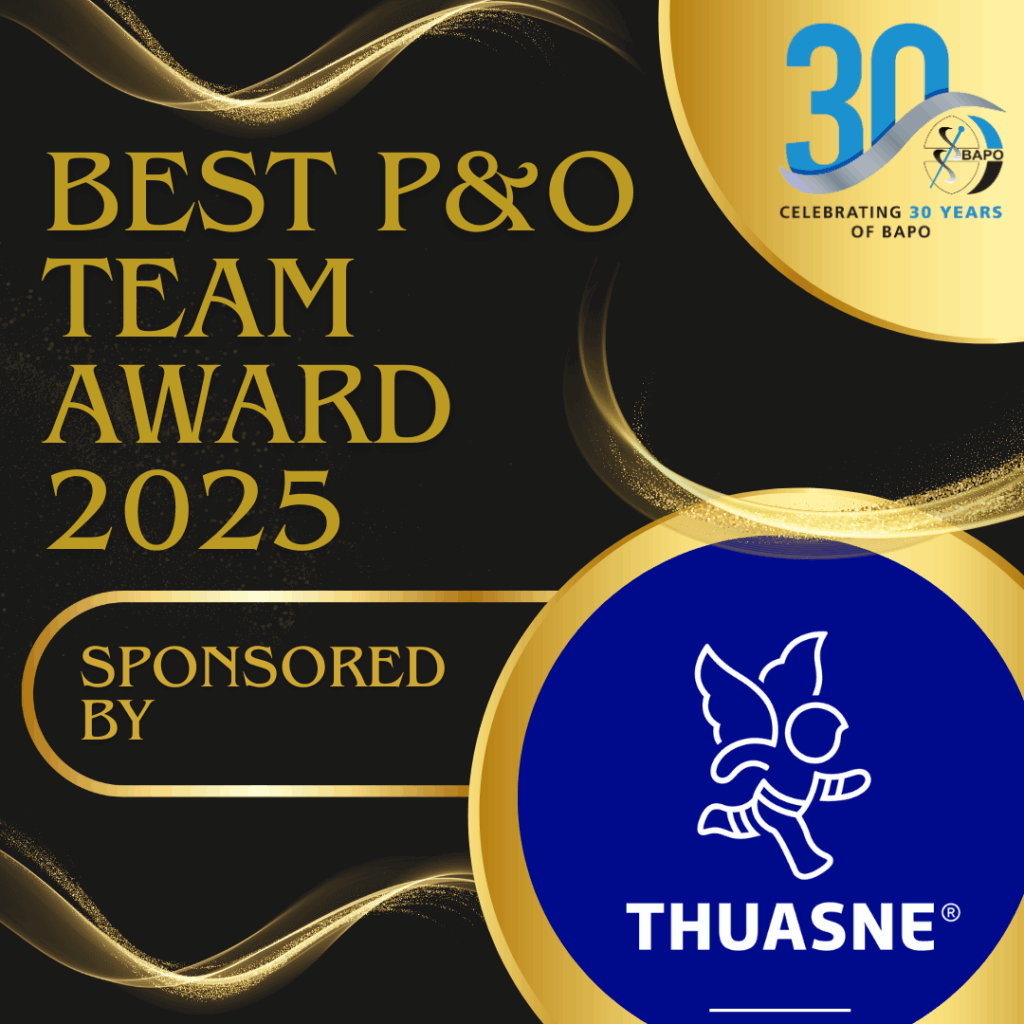


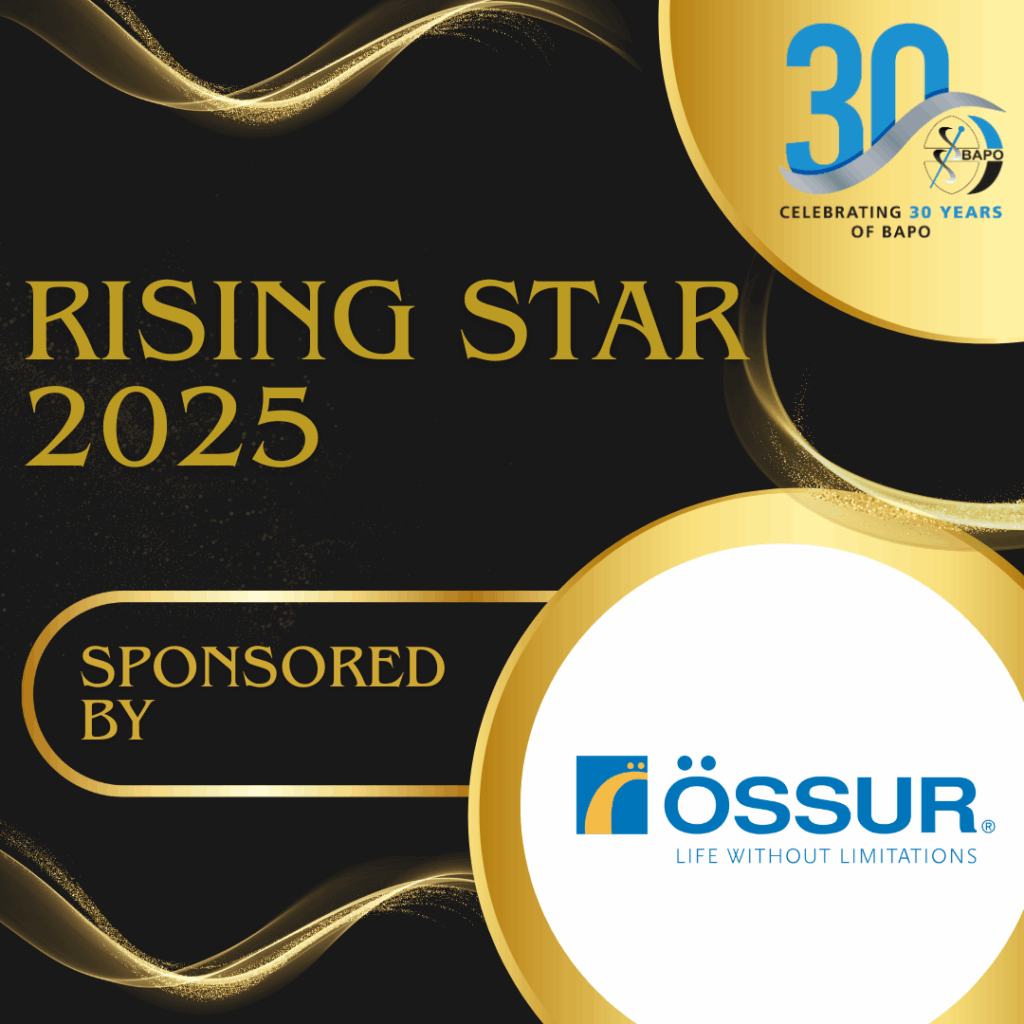
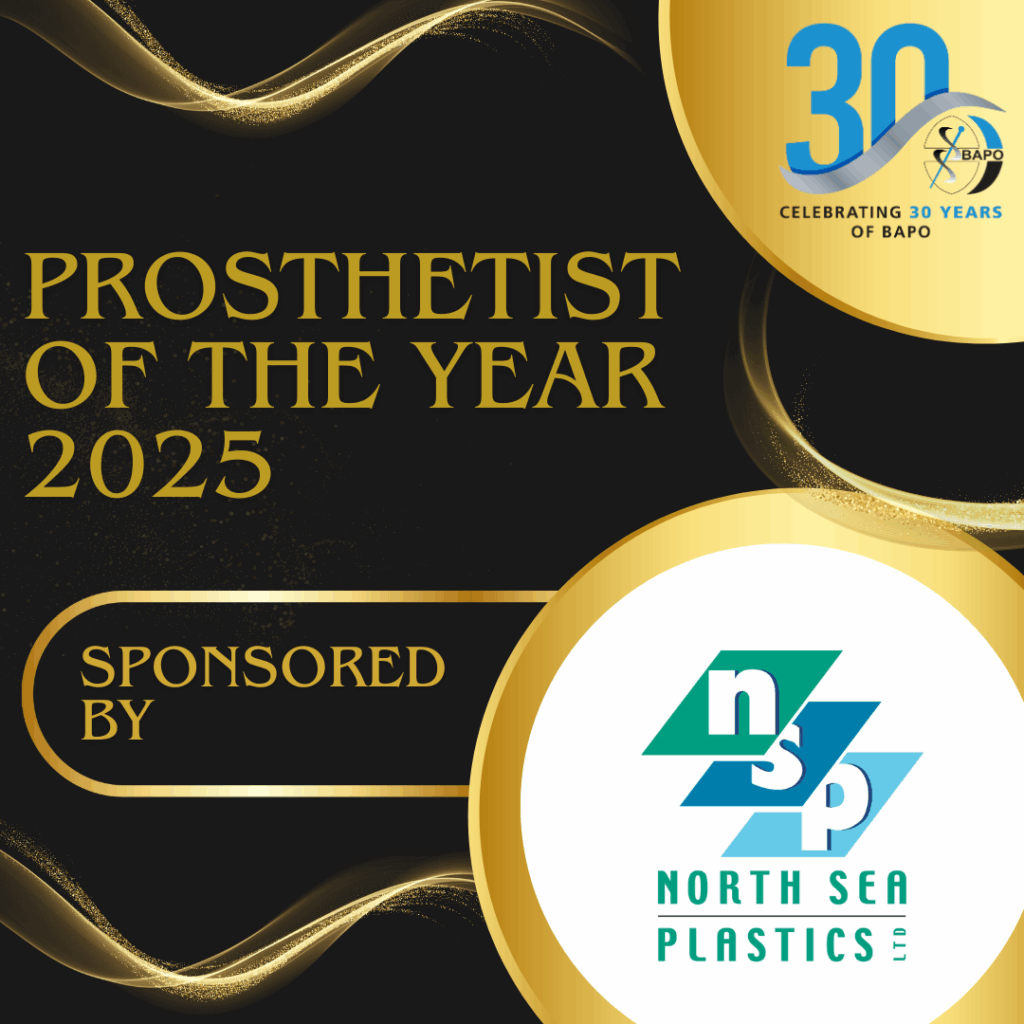
Summer school at Keele University
BAPO is delighted to support Keele University’s P&O Summer School on August 26th and 27th. If you are interested in exploring a career in P&O, contact Keele to book your fully funded place whilst spaces remain. For more information, please contact n.ahmed1@keele.ac.uk
BAPO – New name, new logo
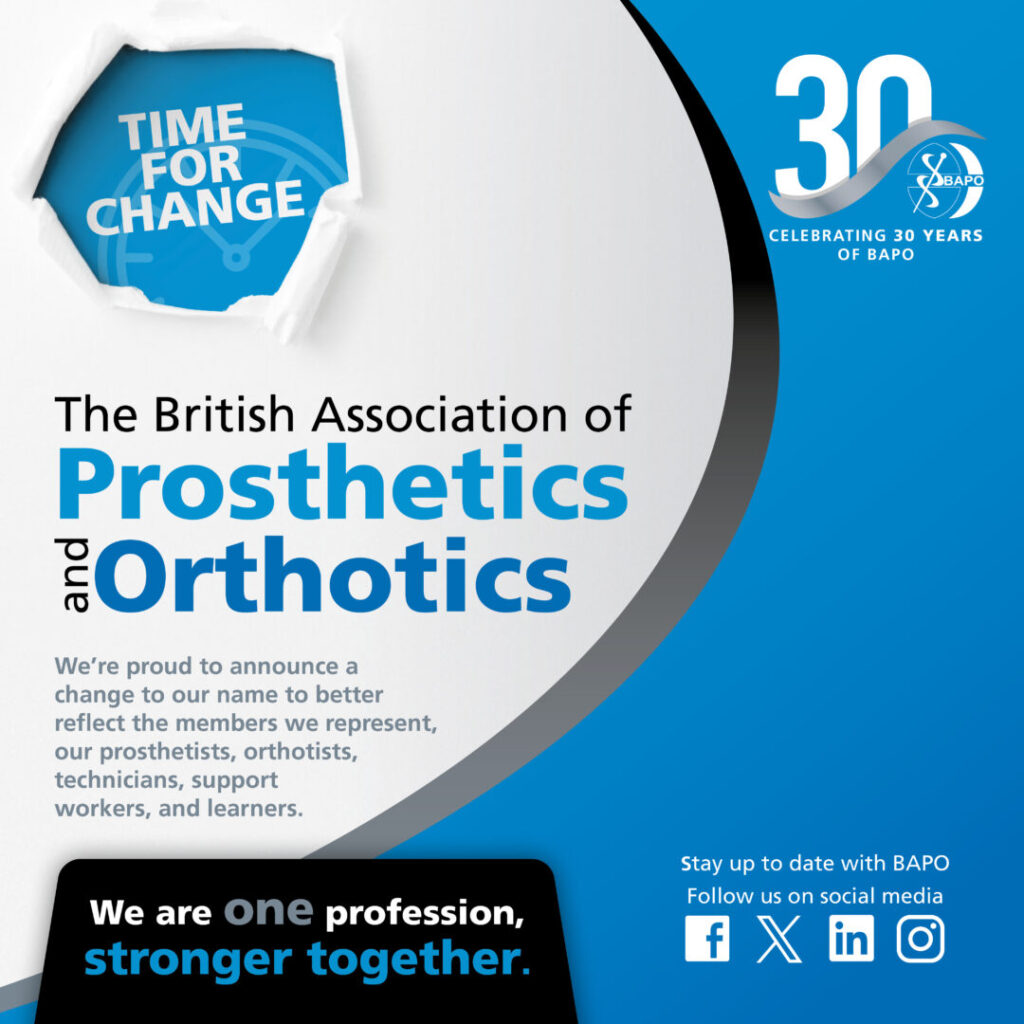
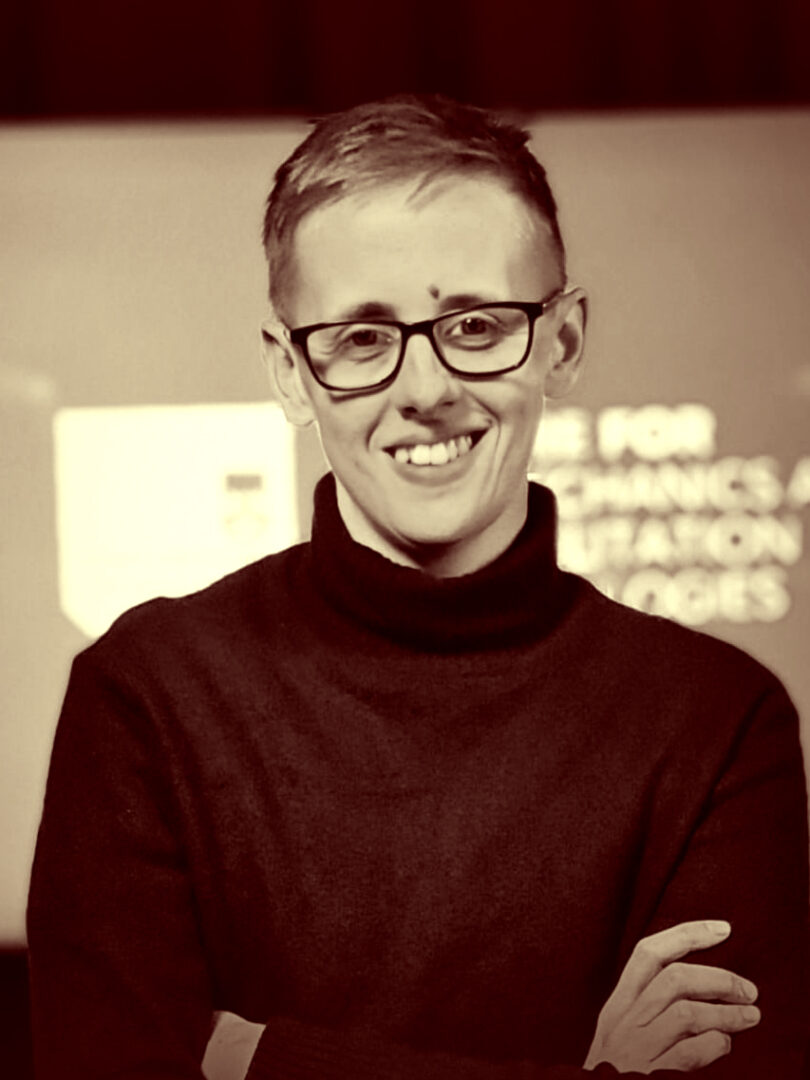
Dr Nicky Eddison
Chair, BAPO
BAPO welcomes Bex Wilkinson as the new Chair of the Technician Committee
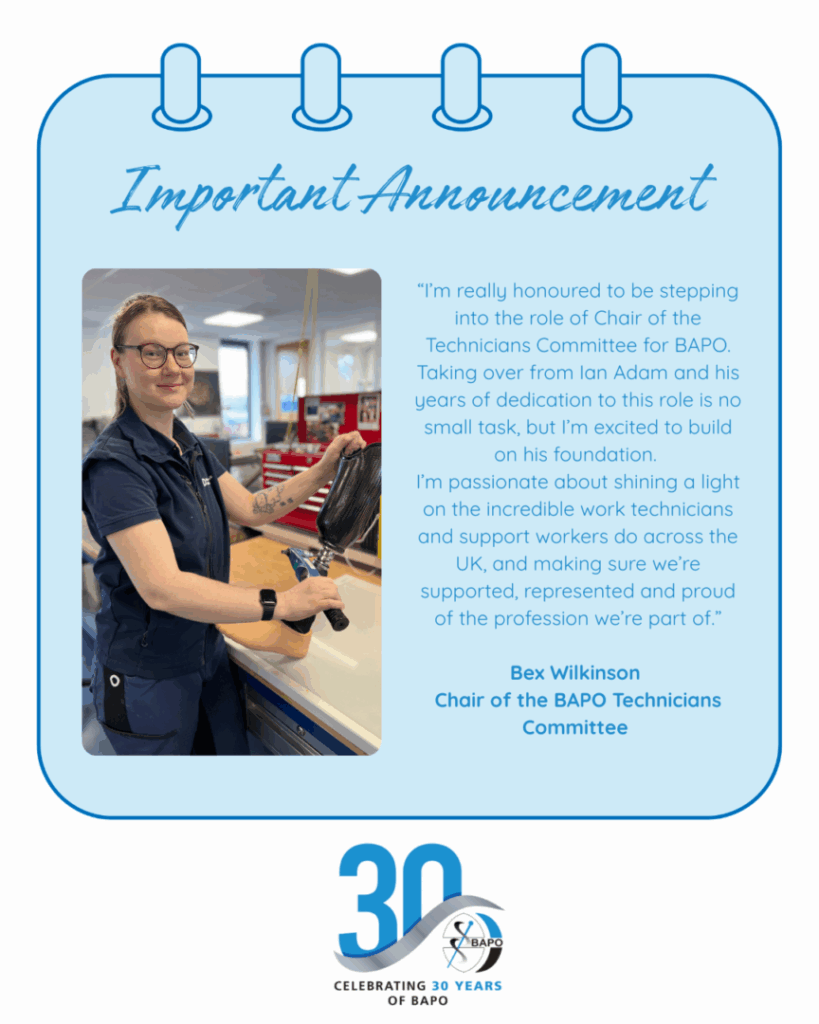

Dr Nicky Eddison
Chair, BAPO
Tech and Trends Webinar – Crispin – Combining 3DP and the Neuromuscular PDE spring

Details
This webinar will detail the design and application of the PDE Neuro strut alongside 3D printing the components for the calf, ankle and foot. The aim of the webinar is to fully explain the modularity and adjustability of the orthosis. The main concept is the interchangeable struts that allow the adjustment of the overall orthosis stiffness.
BAPO Short Course – Improving Provision of Therapeutic Footwear

Day 1 is presented virtually and covers footwear assessment procedures, what to consider, analysis of the situation and how to use this information to choose the most appropriate type of footwear. The different types of footwear will be discussed, stock, modular, and bespoke footwear (its uses, allowances, benefits and limitations). The mechanics of feet and how they affect footwear and how footwear affects feet is included, with lots of detail about designing bespoke footwear and how each part of it should be specified and designed by the orthotist to achieve the best outcome for the patient.
Days 2 and 3 are face to face and includes practical sessions aiming to improve assessment, measuring skills, casting, fitting, supplying and reviewing skills.
Potential problems at fitting and review and how to resolve them will be discussed and suggestions on how to improve practice will be suggested.
Attendees should be prepared to share a short case study on day 1. This can be either a success or a problem that they experience in their footwear provision. A brief description is all that is needed but photos would help.
Attendees should bring an example of a footwear draft to day 2.
Delegates will need to attend all 3 days of this Short Course.
BAPO Teatime Tak – Communication between PO clinicians and Technicians: A qualitative Study

Details
Communication between prosthetic / orthotic clinicians and technicians plays a vital role in Prosthetics and Orthotics. Both parties have to exchange clinical and technical information which needs to be accurately understood to ensure the unique needs of patients are integrated into the design and fabrication process. Due to the limited literature investigating this topic, a qualitative study which aims to explore the impact of communication on PO devices and their relationship are required.
Methods
Semi-structured interviews were performed, targeting the Health Care Professions Council (HCPC) registered prosthetists, orthotists and technicians who worked at four main Opcare centres in Midlands region and two in East Anglia region. Transcribed interviews were input into NVivo software and thematic analysis was employed to identify explore key themes arising from the qualitative data.
Results
Ten respondents took part in this study, seven clinicians and three technicians. Participants used a variety of communication methods; however, verbal communication was mostly preferred. Specification which was too long and ambiguous were identified as a main obstacle to effective written communication. The effectiveness of communication encounters challenges in the context of offsite manufacturing. The importance of device quality was emphasized as a significant factor affecting communication. The study also found that open and honest communication enriched team collaboration and respect among team members.
Conclusions
This qualitative study provides comprehensive and rich data which explores the impact of communication on PO device and relationships and offers recommendations for researchers and practitioners to enhance patient care and foster a friendly work environment through effective communication.
BAPO Teatime Talk – Making sense of Perthes’ Disease: What we know and what we’re still figuring out

Details
This session will provide a practical and research-informed overview of Perthes’ Disease. Drawing on his clinical practice and research over recent years, Adam will explore previous variations in management and how his recent NIHR-funded PhD has looked to optimise non-surgical management. Adam’s PhD focused on developing the NON-STOP app, a digital self-management intervention to support children with Perthes’ Disease and their families. His research involved engaging key stakeholders—including children, families, and clinicians—through qualitative interviews, a national consensus process, and iterative app design and testing. Adam will also explain how these findings, alongside strong engagement with the clinical community, have led to the UK undertaking the first ever prospective RCT in Perthes’ disease: the Op NON-STOP study.
BAPO Teatime talk – The Psychological Impact of Stroke

Details
Cognitive and emotional changes are common following stroke and can have a significant impact on an individual’s quality of life and recovery. The talk will provide an overview of the cognitive and emotional impact of stroke for stroke survivors and their families. It will also look to touch upon related areas of fatigue and practical implications such as return to work and driving.